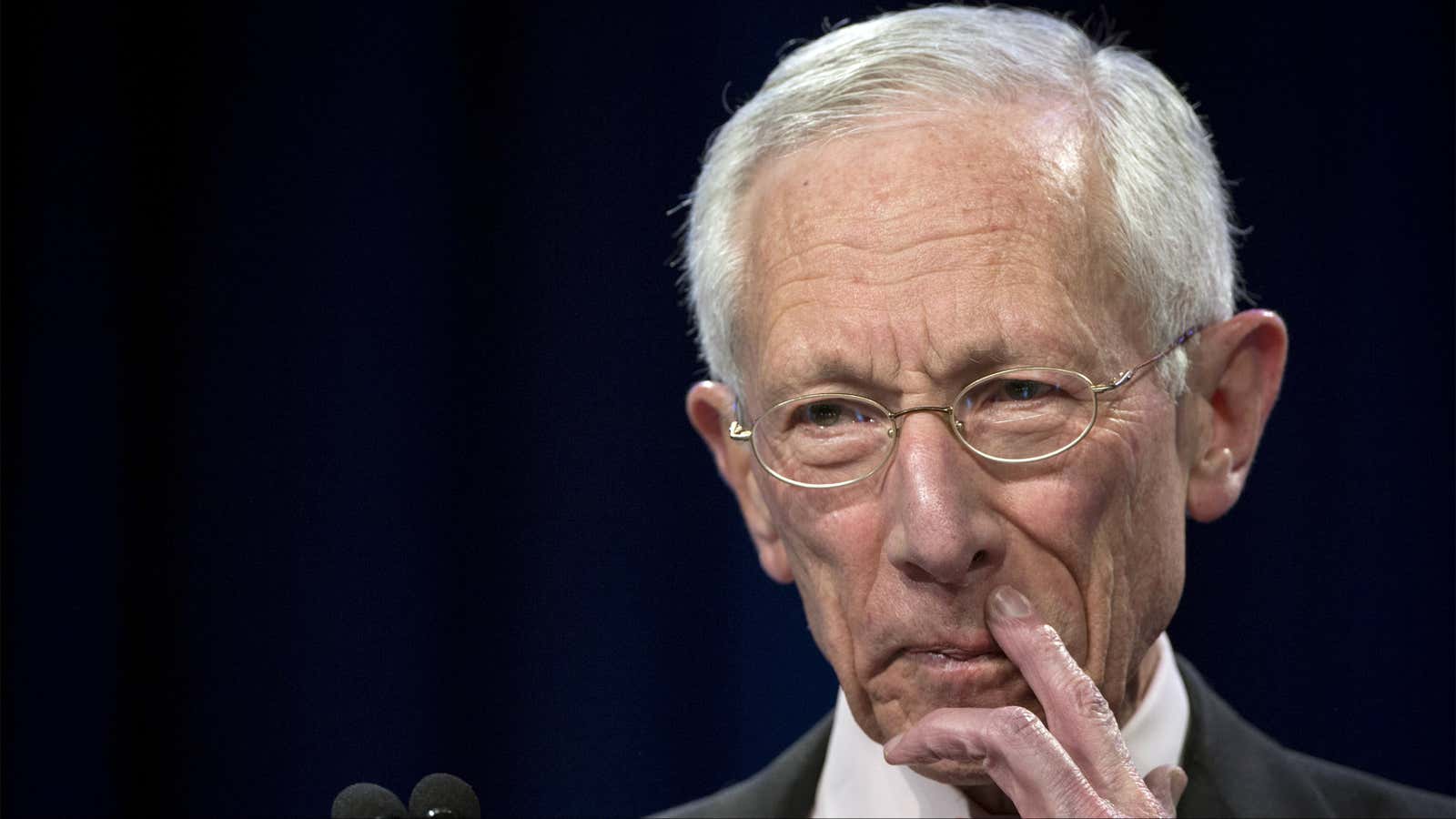Donald Trump has waffled about whether he will renew the term of the current US Federal Reserve chair, Janet Yellen, when her term expires in February next year. Now, the president won’t need to wait that long to shake up the top one of the world’s most influential economic institutions: vice chairman Stanley Fischer just handed in his resignation.
Fischer’s resignation is effective from Oct. 13, eight months before his tenure as vice chair was scheduled to end. In a letter to the president, Fischer said he was resigning for “personal reasons.”
Still, Fischer’s positions aren’t exactly in tune with the Trump administration. Last month, Fischer came out against efforts to roll back financial regulation put in place after the global financial crisis. He said in an interview with the Financial Times (paywall) that plans to loosen rules on banks was “dangerous and extremely short-sighted.”
“I had a picture of the world economy in which the United States was an anchor, not a source of volatility,” Fischer told the FT. “This really changes things.”
In a speech at the end of July explaining why interest rates were so low, Fischer said part of the problem was weak investment. He noted that “uncertainty about the outlook for government policy in health care, regulation, taxes, and trade can cause firms to delay projects until the policy environment clarifies.”
By early 2018, Trump will be able to nominate candidates to fill five of the seven positions on the Fed’s Board of Governors, who all sit on the all-important rate-setting committee. Financial circles are rife with rumors about who could replace Yellen next year, with the front runner thought to be Gary Cohn, currently head of Trump’s National Economic Council and formerly president of Goldman Sachs.
Although Trump inherited three vacancies on the Fed’s Board of Governors—the Senate routinely blocked hearings for president Barack Obama’s nominees—the chair and vice chair are the ones who shape the direction of monetary policy in the US. (The Fed board hasn’t had a full complement of seven members since 2013.) Trump nominated Randal Quarles, a senior Treasury official under president George W. Bush, to a governor post charged with leading the Fed’s regulatory efforts, but his nomination is still pending before the Senate.
Fischer, 73, has been a member of the Fed’s Board of Governors since May 2014, and before that led one of the most interesting careers in finance. He was born in Zambia in 1943 and studied at the London School of Economics before receiving his PhD at Massachusetts Institute of Technology. Since then it’s been one prestigious role after another: He was chief economist at the World Bank, deputy managing director a the IMF, vice chairman of Citigroup, and governor of the Bank of Israel for eight years.
But he’s perhaps best known for teaching several of the world’s leading policymakers. Former Fed chairman Ben Bernanke, European Central Bank president Mario Draghi, and Lawrence Summers, a former US Treasury Secretary, were all students of Fischer’s at MIT. Bernanke said Fischer was one of his most influential teachers.
